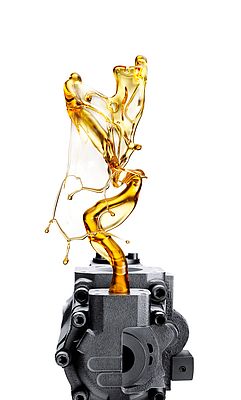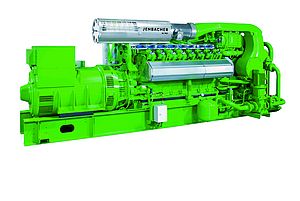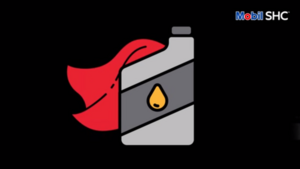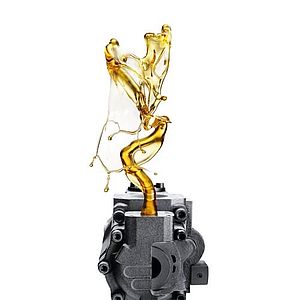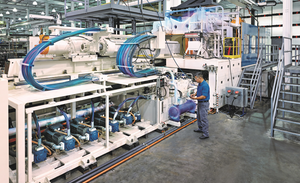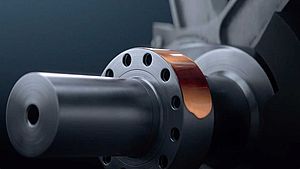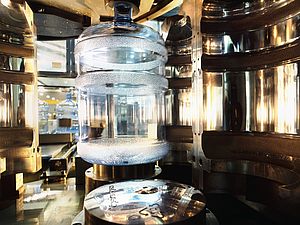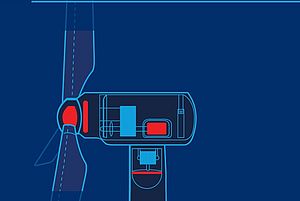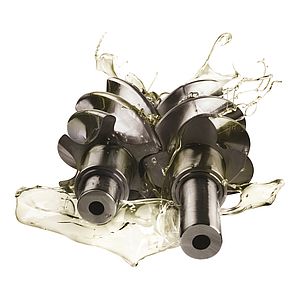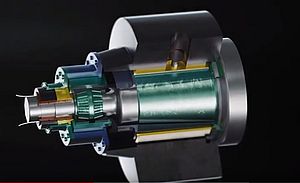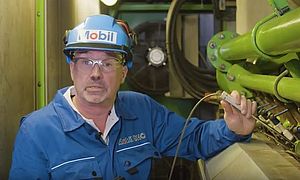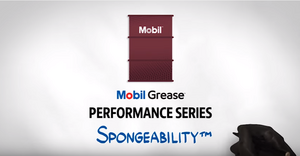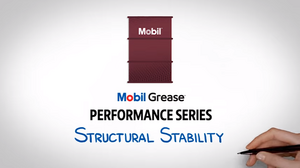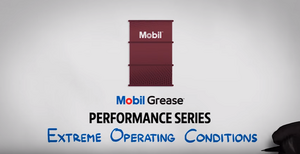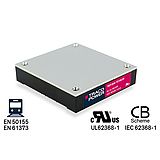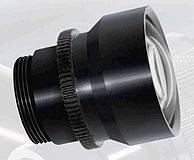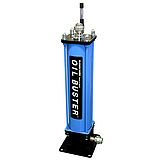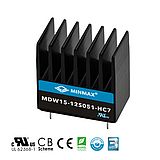By following the tips below, companies can make informed decisions when it comes to selecting the correct hydraulic oil and system maintenance plan to help ensure their operations remain competitive and productive.
What to Look For in a Hydraulic Fluid?
Right Specifications
One starting point for selecting a hydraulic lubricant is the original equipment manufacturers' (OEMs) recommendation. This may be specific to the machine manufacturer or the hydraulic component manufacturer, e.g., Eaton, Denison and Bosch. The OEM's recommendation typically provides the appropriate viscosity grade for the expected operating temperature and pressure range. It also indicates a minimum level of specifications and performance level, such as having Denison HF-0, Eaton/Vickers M-2952-S, ISO11158 type HV, DIN51524-HLP (2006, part2).
Right Viscosity
Above all, viscosity is the most critical factor when selecting a hydraulic fluid. It is important to match the appropriate viscosity grade to operating temperatures and load conditions that a hydraulic system may undergo on a daily basis. Without the correct viscosity, the system will not operate as designed and the system will likely never reach peak efficiency. For equipment that is being used outside and subjected to both hot and cold extremes, a high viscosity index, multigrade lubricant that features a balanced formulation may be required.
Right Performance Attributes
Given the higher pressures, higher temperatures and smaller size of modern hydraulic systems, hydraulic fluids must do more than simply satisfy the correct viscosity and OEM specification. High temperatures and pressures demand fluids that are oxidatively and thermally stable while preventing deposit formation and providing a high degree of anti-wear protection under these extreme conditions. The fluid must also possess excellent air release properties, filterability and seal compatibility. Moreover, the very latest generation of hydraulic fluids can also help increase overall hydraulic system efficiency.
A good option is Mobil DTE 10 Excel. Designed to handle the lubrication requirements of both industrial and mobile high pressure hydraulic systems, Mobil DTE 10 Excel features an advanced formulation that delivers exceptional oil life, hydraulic system cleanliness, enhanced system efficiency and component protection in modern hydraulic systems.
Hydraulic efficiency benefits can translate to increased machine productivity and/or reduced fuel consumption. In controlled laboratory testing, Mobil DTE 10 Excel demonstrated up to 6* percent increase in hydraulic pump efficiency compared to standard mineral-based hydraulic oils. In addition, in controlled field testing, up to a 6 percent reduction in fuel consumption** per work cycle was documented in a hydraulically driven excavators.
Best Practices for Hydraulic System Maintenance
Keep it Clean
Keeping hydraulic systems clean is a must for all environments. The combination of high pressures, small reservoir size and tight tolerance control systems make the exclusion of contaminants crucial in all critical systems.
To keep the system free of contamination, a good place to start is by storing and handling oil properly. The hydraulic system reservoir should also have a high quality desiccant breather and system filter, as recommended in the manufacturer's guidelines.
Oil Analysis
As part of routine maintenance, the "health" of the hydraulic oil and the hydraulic system itself should be regularly checked. Typically, it is advised that maintenance professionals perform quarterly oil analyses and annual system inspections.
The oil analysis should include a measurement of fluid viscosity, water content, particle count and dissolved metals to determine how well the system is operating. Examining changes in the oil analysis data over time, also known as "trending," is necessary to assess the condition of the hydraulic fluid. By trending oil analysis data it is possible to proactively address undesirable conditions before they become problems.
For plant managers and equipment maintenance professionals who want an effective oil analysis programme that can also save time and money, there is ExxonMobil's proprietary online Signum oil analysis programme. Signum oil analysis offers engineers immediate access and direct control of their lubricant sampling programme.
Visual Inspections
Beyond oil analysis, visual system inspections should be conducted regularly to check and document the condition of the hydraulic systems.
Maximising Hydraulic System Performance
Today's hydraulic units are far more sophisticated than ever before. By following the tips provided above, plant managers, equipment maintenance professionals or purchasing agents, can make informed decisions that will help maximise the performance and life of their company's critical hydraulic systems.
* Energy Efficiency of Mobil DTE 10 Excel relates solely to the fluid performance when compared to ExxonMobil's standard hydraulic fluids. The technology used allows up to six percent increase in hydraulic pump efficiency compared to Mobil DTE 20 series when tested in standard hydraulic applications under controlled conditions. The energy efficiency claim for this product is based on test results on the use of the fluid conducted in accordance with all applicable industry standards and protocols. In case of queries, please consult TechDeskEurope@exxonmobil.com. Results may vary depending on operating conditions.
** Results may vary depending on operating conditions
Author: Umut Urkun, Industrial Marketing, Europe, Africa & Middle East, ExxonMobil Lubricants and Specialties



